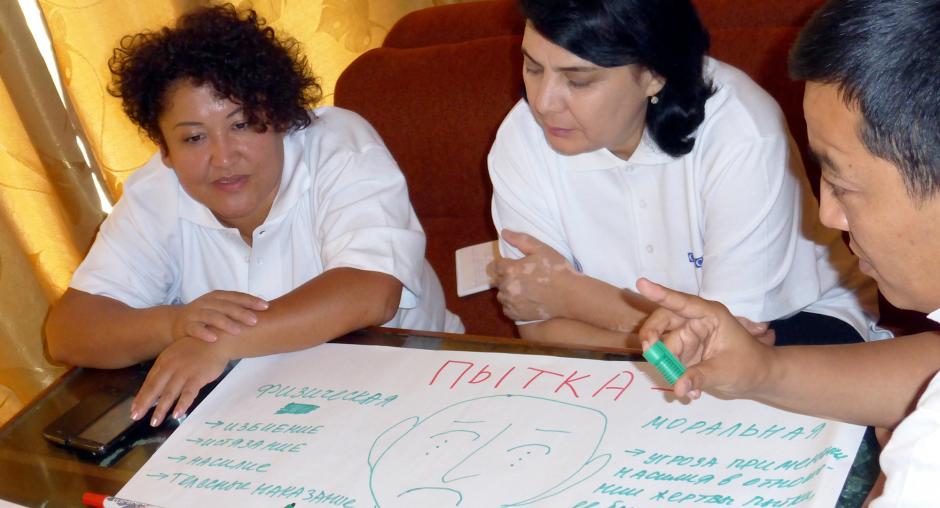OSCE trains officials in Uzbekistan to support efforts in torture prevention

The establishment of a national torture prevention mechanism in accordance with international standards was the focus of a three-days training course organized by the OSCE Project Co-ordinator in Uzbekistan and the OSCE Office for Democratic Institutions and Human Rights (ODIHR), in co-operation with the Office of the Ombudsperson, in Tashkent, from 22 to 24 July 2014.
The course focused on the definition of torture, relevant international standards and state obligations, torture prevention issues and the concept of national preventive mechanisms, and brought together 35 participants from the Office of the Ombudsperson and the Ombudsperson Expert Group, as well as from the General Prosecutor’s Office, the Ministries of Justice, Interior and health, the Penitentiary System Administration, the Women’s Committee and civil society organizations.
“We believe that the protection of human rights and fundamental freedoms is one of the strongest elements of comprehensive security in the OSCE region,” said Ambassador György Szabó, OSCE Project Co-ordinator in Uzbekistan. “The Ombudsperson’s role is to safeguard, protect and, when necessary, restore human rights. Restoring these rights is always a last step, so there is a strong need for preventive mechanisms.”
Snježana Bokulić, Head of ODIHR Human Rights Department, said: “ODIHR welcomes Uzbekistan’s initiative to set up a national preventive mechanism, and this course is a part of our support to the authorities through sharing good practices from other OSCE countries in the monitoring of closed institutions and development of national preventive mechanisms.”
Sayyora Rashidova, the Ombudsperson of Uzbekistan, said: “This training course will promote and facilitate the reforms in the judicial and legal spheres, and equip the participants with the knowledge and best practices on the establishment and functioning of a national preventive mechanism.”
This training is in line with ODIHR’s mandate to assist participating States in implementing their human dimension commitments, and part of a project by the OSCE Project Co-ordinator in Uzbekistan on building the capacity of the Ombudsperson Institution, supporting efforts to bring national legislation into conformity with international standards and to establish a national preventive mechanism.
